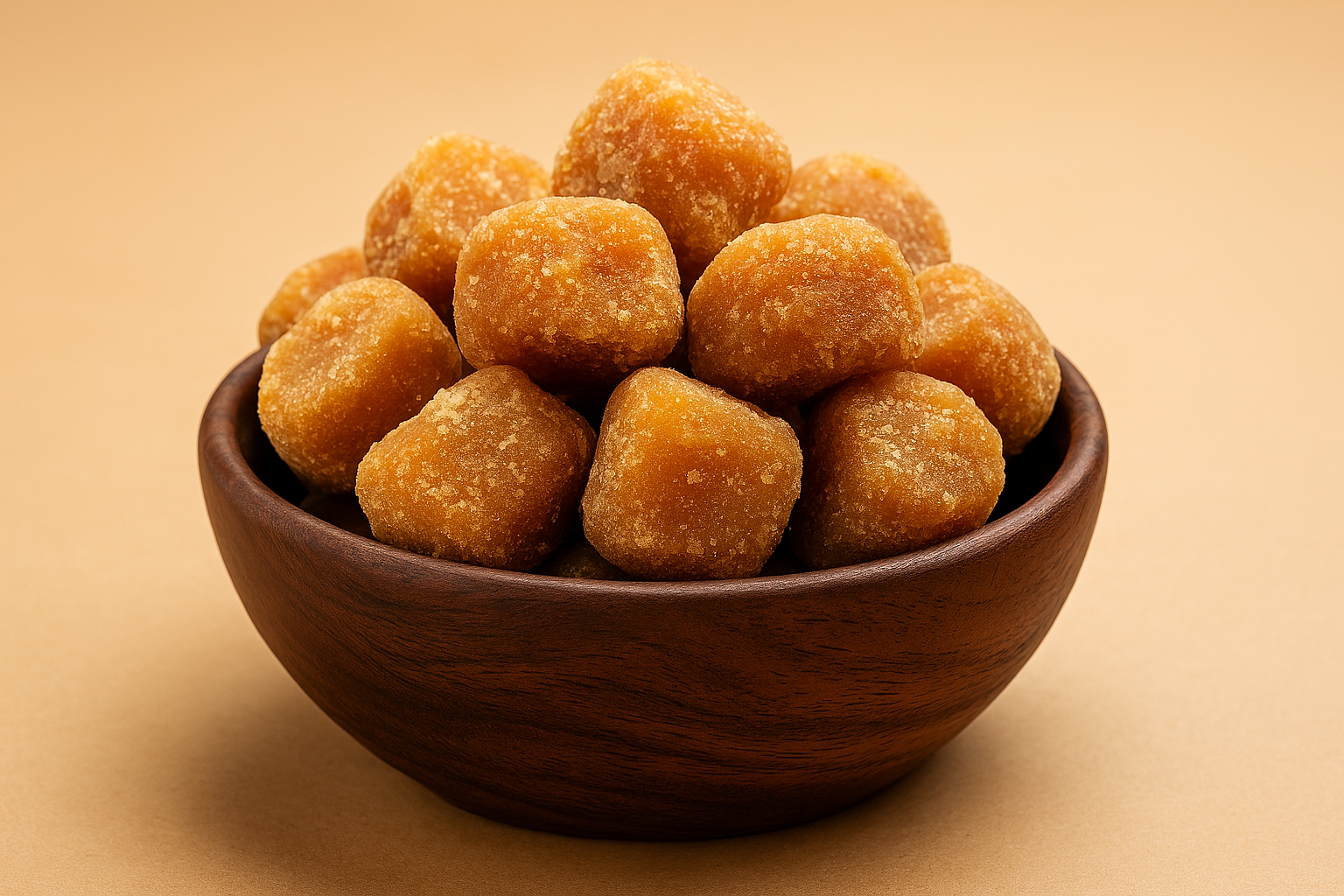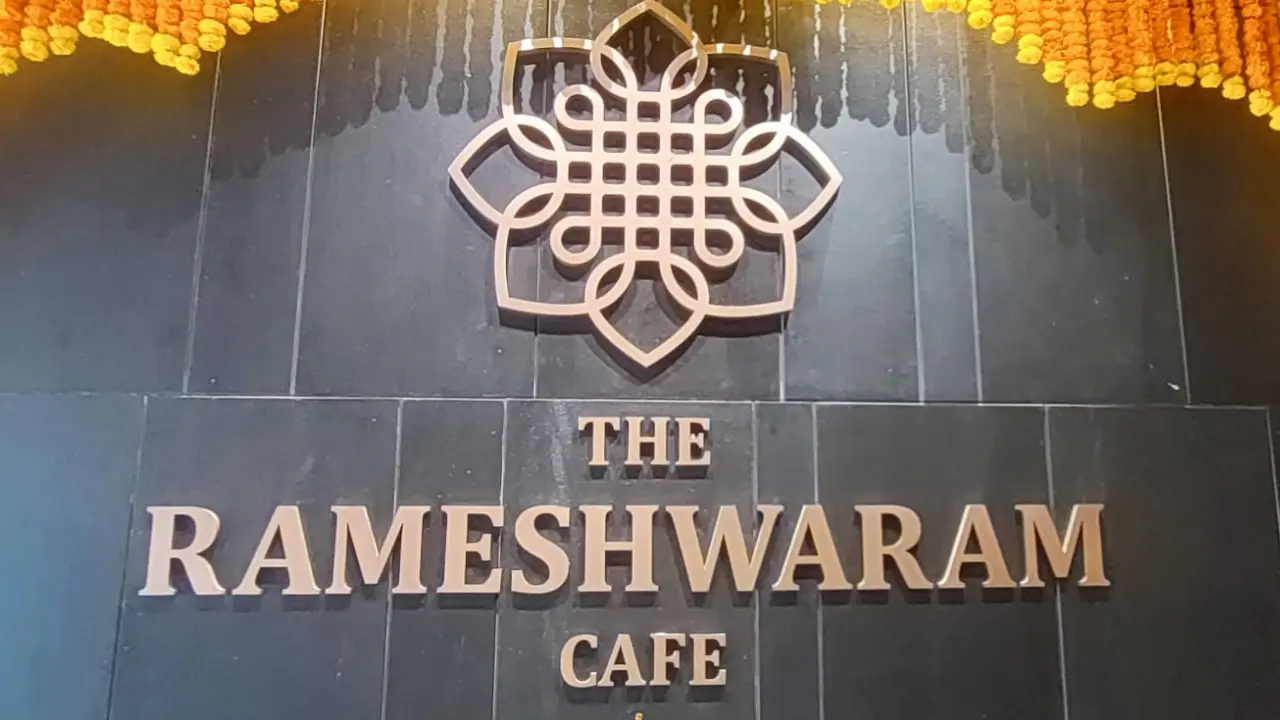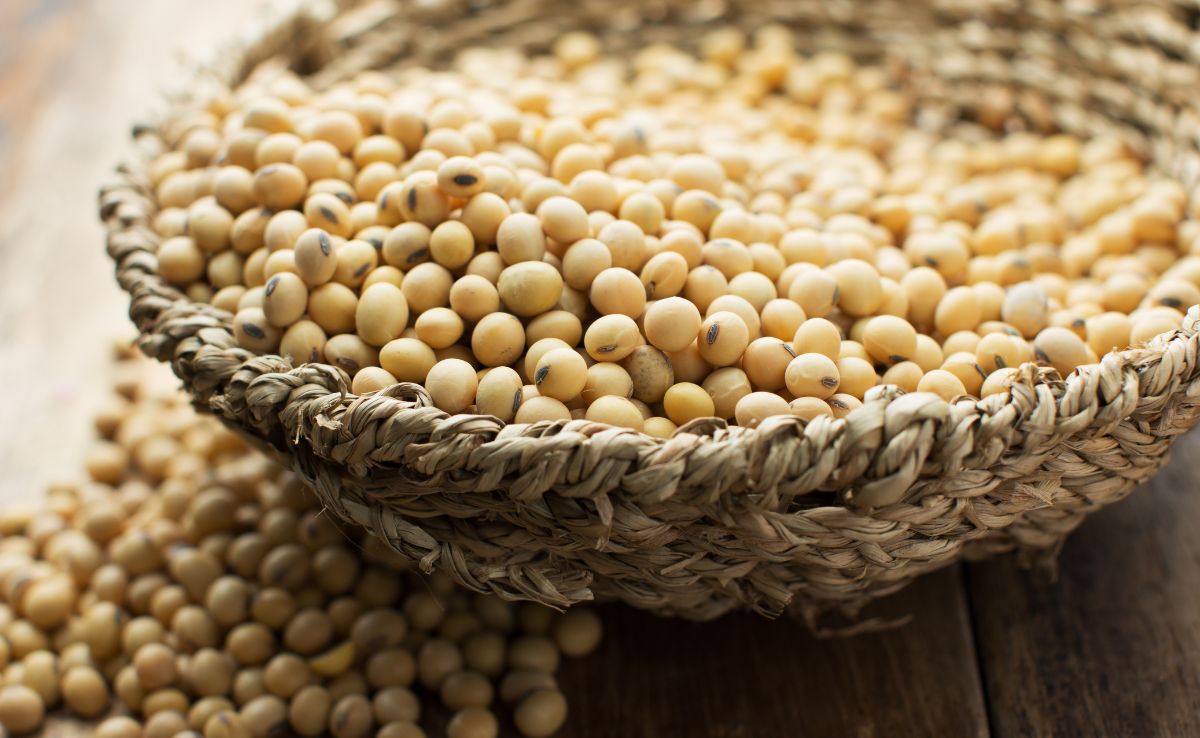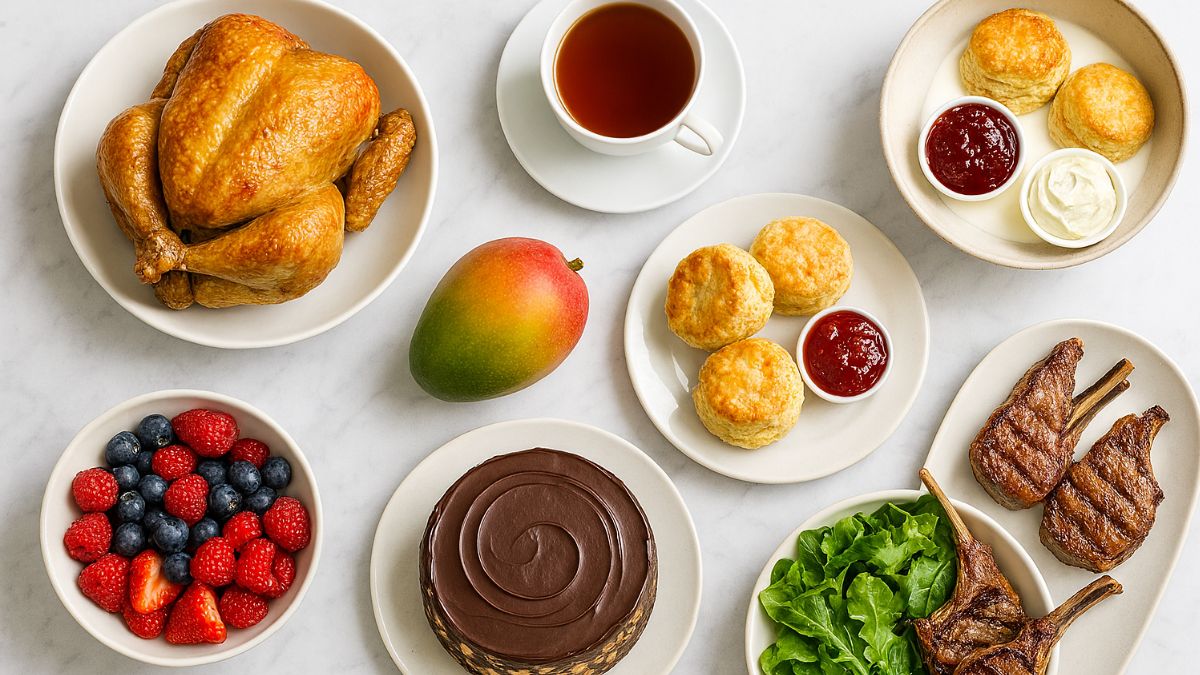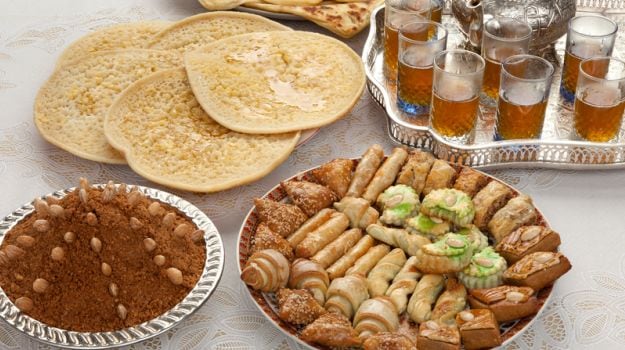The holy month of Ramadan starts on 27th May Saturday, and the air of spirituality and festivity is taking over the world already. The ninth month of the Islamic calender, Ramadan, is a significant month for the people of Islamic faith, as it was when the holy Quran was first revealed as the guiding manual of good and bad, including fables and anecdotes to direct general mankind towards the path of goodness and civility. It is believed that in this pious month, the gates of paradise are open, while the devils in hell are all chained behind the closed doors of hell, who can't tempt the believers and hinder their true prayers. The glorious night on which The Quran was revealed to Prophet Mohammad is referred to as the Lailat ul Qadr, and it is believed that true prayers, devotion and good actions will reap results equalling the several years of worship. In the month of Ramadan, which is said to be specially blessed by Allah, Muslims try to recite The Quran as many times as possible. Muslims observe the holy fast of Ramadan called the Sawm through daylight and break their fasts together after sunset (Iftaar). Along with fasting, Muslims also exercise restraint on consuming alcohol and involving in sinful speech and behaviour.

This act of fasting is believed to steer the devotee's heart away from worldly activities, cleansing the soul of impurities. In addition, it instills a sense of self-discipline, self-control, sacrifice and empathy for those who are less fortunate and charity (zakat). While It becomes compulsory for Muslims to start fasting as soon as they reach puberty, however, those harbouring disabilities or any illnesses are exempted. Menstruating, pregnant and breastfeeding women also have a liberty to miss a few fasts. Sehri and Iftaar
The pre-fast meal consumed before dawn each day of the fasts is known as Sehri. Families wake up early in the morning, and after the ritualistic prayer, eat the meal before dawn and start their fast. At sunset, families prepare for the fast-breaking meal known as Iftar, starting with dates. It is said that Prophet Muhammad broke his fast with three dates, and hence it stuck.Muslims adjourn for the Maghrib prayer, the fourth of the five daily prayers, after which they proceed for their main meal. Iftaar meal is usually a lavish affair with many communities organizing a mass gathering, where signature Ramadan dishes, drinks and desserts are served. From sherbats to sumptuous kebabs, lamb stewed with wheat berries, grilled vegetables and roasted chicken, an Iftaar meal is a culinary carnival in itself. (Also read: Ramadan Recipes: Making the Most of Dates)

Here is the table for Sehri and Iftaar timings for the entire month of Ramadan:
*The table is generated as per the tentative schedule of the moon's movement, the first day of Ramadan fasting will be confirmed on Friday. Dua for keeping a fast: Wa bisawmi ghaddan nawaiytu min shahri ramadan

This act of fasting is believed to steer the devotee's heart away from worldly activities, cleansing the soul of impurities. In addition, it instills a sense of self-discipline, self-control, sacrifice and empathy for those who are less fortunate and charity (zakat). While It becomes compulsory for Muslims to start fasting as soon as they reach puberty, however, those harbouring disabilities or any illnesses are exempted. Menstruating, pregnant and breastfeeding women also have a liberty to miss a few fasts. Sehri and Iftaar
The pre-fast meal consumed before dawn each day of the fasts is known as Sehri. Families wake up early in the morning, and after the ritualistic prayer, eat the meal before dawn and start their fast. At sunset, families prepare for the fast-breaking meal known as Iftar, starting with dates. It is said that Prophet Muhammad broke his fast with three dates, and hence it stuck.Muslims adjourn for the Maghrib prayer, the fourth of the five daily prayers, after which they proceed for their main meal. Iftaar meal is usually a lavish affair with many communities organizing a mass gathering, where signature Ramadan dishes, drinks and desserts are served. From sherbats to sumptuous kebabs, lamb stewed with wheat berries, grilled vegetables and roasted chicken, an Iftaar meal is a culinary carnival in itself. (Also read: Ramadan Recipes: Making the Most of Dates)
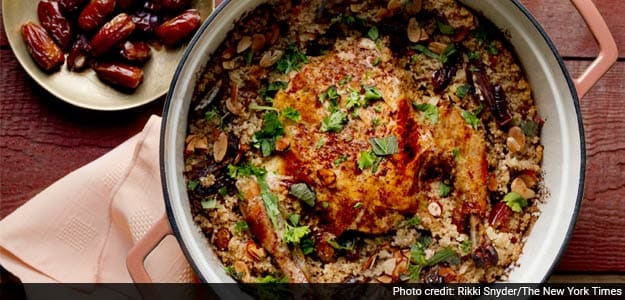
Here is the table for Sehri and Iftaar timings for the entire month of Ramadan:
| DATE | DAY | SEHRI | IFTAAR |
| 28 May 2017 | Sunday | 4:29 a.m. | 7:15 p.m. |
| 29 May 2017 | Monday | 4:29 a.m. | 7:15 p.m. |
| 30 May 2017 | Tuesday | 4:29 a.m | 7:16 p.m. |
| 31 May 2017 | Wednesday | 4:29 a.m | 7:16 p.m. |
| 1-Jun-17 | Thursday | 4:28 a.m | 7:16 p.m. |
| 2-Jun-17 | Friday | 4:28 a.m | 7:17 p.m. |
| 3-Jun-17 | Saturday | 4:28 a.m | 7:17 p.m. |
| 4-Jun-17 | Sunday | 4:28 a.m | 7:17 p.m. |
| 5-Jun-17 | Monday | 4:28 a.m | 7:18 p.m. |
| 6-Jun-17 | Tuesday | 4:27 a.m | 7:18 p.m. |
| 7-Jun-17 | Wednesday | 4:27 a.m | 7:18 p.m. |
| 8-Jun-17 | Thursday | 4:27 a.m | 7:19 p.m. |
| 9-Jun-17 | Friday | 4:27 a.m | 7:19 p.m. |
| 10-Jun-17 | Saturday | 4:27 a.m | 7:19 p.m. |
| 11-Jun-17 | Sunday | 4:27 a.m | 7:20 p.m. |
| 12-Jun-17 | Monday | 4:27 a.m. | 7:20 p.m. |
| 13-Jun-17 | Tuesday | 4:27 a.m. | 7:20 p.m. |
| 14-Jun-17 | Wednesday | 4:27 a.m. | 7:20 p.m. |
| 15-Jun-17 | Thursday | 4:27 a.m. | 7:21 p.m. |
| 16-Jun-17 | Friday | 4:27 a.m. | 7:21 p.m. |
| 17-Jun-17 | Saturday | 4:27 a.m. | 7:21 p.m. |
| 18-Jun-17 | Sunday | 4:27 a.m. | 7:21 p.m. |
| 19-Jun-17 | Monday | 4:27 a.m. | 7:21 p.m. |
| 20-Jun-17 | Tuesday | 4:27 a.m | 7:22 p.m. |
| 21-Jun-17 | Wednesday | 4:28 a.m. | 7:22 p.m. |
| 22-Jun-17 | Thursday | 4:28 a.m. | 7:22 p.m. |
| 23-Jun-17 | Friday | 4:28 a.m. | 7:22 p.m. |
| 24-Jun-17 | Saturday | 4:29 a.m. | 7:23 p.m. |
| 25-Jun-17 | Sunday | 4:29 a.m. | 7:23 p.m. |
| 26-Jun-17 | Monday | 4:29 a.m. | 7:23 p.m |
Dua for breaking a fast: Allahumma inni laka sumtu wa bika aamantu wa 'alayka tawakkaltu wa 'ala rizq-ika aftarthu fathakabl minni
Ramadan Mubarak everyone!
Advertisement
About Sushmita SenguptaSharing a strong penchant for food, Sushmita loves all things good, cheesy and greasy. Her other favourite pastime activities other than discussing food includes, reading, watching movies and binge-watching TV shows.
